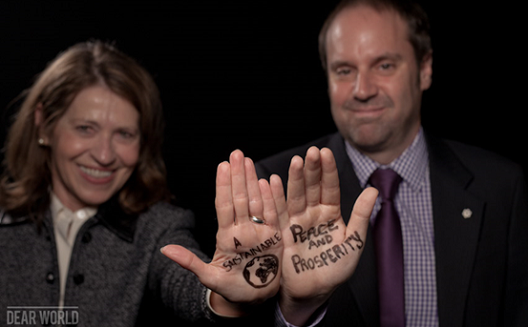Disruptive Entrepreneurship Part II: Key Takeaways from the Skoll World Forum


After performing my annual pilgrimage to the Skoll World Forum on Social Entrepreneurship at Oxford University, UK — which gathered almost 1000 global changemakers for the ‘Davos’ of social innovation — these are my seven key takeaways:
1. We suffer from a crisis of values.
When 1 billion children live in poverty and almost 800 million people lack access to clean water, yet we have already entered space tourism, and annual global military expenditure is estimated at $1.7 trillion, we suffer from a crisis of values.
Capitalism shouldn’t be blamed for all of the world’s woes, maybe we should.
At Skoll I learned how the tools of capitalism were being employed for good. For example, financial products like microfinance, impact investing, and social impact bonds can do real good in many communities.
I also learned that transferring the best frameworks and skills through replication or ‘social franchising’, is not enough. If values don’t transfer, then projects are doomed for failure.
2. Social entrepreneurs dare to imagine the unimaginable.
One of my favorite books is The Power of Unreasonable People, which chronicles tales of social entrepreneurs around the world who have had both the audacity and tenacity to make the world adapt to their vision. "It's chutzpah that allows you to make outrageous requests without blinking an eye and change the world," Jeff Skoll, founder of the Forum, told delegates.
And Muhammad Yunus, Nobel Laureate and penultimate social entrepreneur, questioned that, “If science fiction spurred technological advancements by conceiving and creating the impossible, then shouldn’t we be writing social fiction?”
But, despite being unreasonable, social entrepreneurs are…
3. Masterful collaborators.
Jeff Skoll’s welcome note describes social entrepreneurs as “masterful collaborators, skilled at creating the alliances and networks needed to bring about the change they envision.”
One of this year’s Skoll Awardees is one such example: Crisis Action brings human rights and humanitarian organizations together across continents to protect civilians from armed conflict. Remaining entirely behind-the-scenes, Crisis Action acts as a catalyst and coordinator catapulting organizations to fight injustice.
But finding the right partners, advocates, and alliances, and leveraging each to further your mission, can take a lot of…
4. Patience, patience, patience.
Although social entrepreneurs are known to be stubborn, difficult to work with at times, and impatient with incremental change, I realized during my third Skoll, and third year in business, that social entrepreneurs have tremendous patience.
I was sharing my frustration with a South African social entrepreneur and previous Skoll Awardee about the slow pace of project materialization in the MENA region. “From our first meeting to actually starting a project, it can take up to a year. Some things have been in the pipeline for 2.5 years! The shortest was 90 days!” I said. “You’re advanced,” he told me. “For us it took an average of 18 months.”
And at times when most startups would call it quits, social entrepreneurs persist, looking for alternative ways to fulfill their social mission.
Marina Silva, former Environment Minister of Brazil, who spoke at the Forum, put it best when asked whether she was an optimist or pessimist: “I am persistent.”
5. We are in the business of hope.
Every year I choose a new quote to go under my email signature. My 2013 quote is by Jacqueline Novogratz, impact investing pioneer and CEO of the Acumen Fund, who I had the pleasure of speaking with on a panel in Dubai. “The most powerful thing you can build in a cynical world is hope,” she said.
Bill Strickland, President and CEO of US-based Manchester Bidwell Corporation, which works with at-risk youth and marginalized adults in transition, spoke at the Forum on manufacturing hope. “Hope is a medicine. It can cure cancer of the spirit."
6. Everyone must be a changemaker—especially youth.
"To change a framework and tip a system, you need jujitsu: identify key thought leaders within a system and convert them!” Bill Drayton, the godfather of social entrepreneurship and Ashoka founder, told delegates.
He urged everyone to be a changemaker, and emphasized the role of youth in dislodging old systems, breaking silos and barriers, and forging new pathways—a paradigm shift, he said, from the old model.
With the MENA youth bulge—or blessing, depending on how you look at it—there is no better time for Arab youth to become changemakers in society.
7. Self-renewal for greatness.
In a hypothetical plane emergency, we all know we’re supposed to put our own oxygen mask on first before helping others. Yet many social activists forget to practice this in their work.
We all work better when we’re happy and balanced. Doing good work for the world means you cannot afford to burn out. As Susan Collin Marks, of Search for Common Ground, said in her Leadership Renewal session: "In healing ourselves we heal the world."
Remember this mantra, and follow these examples in all the work for social good that you seek to accomplish.


